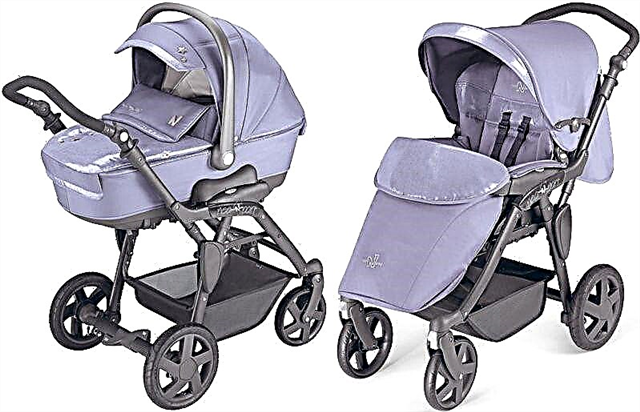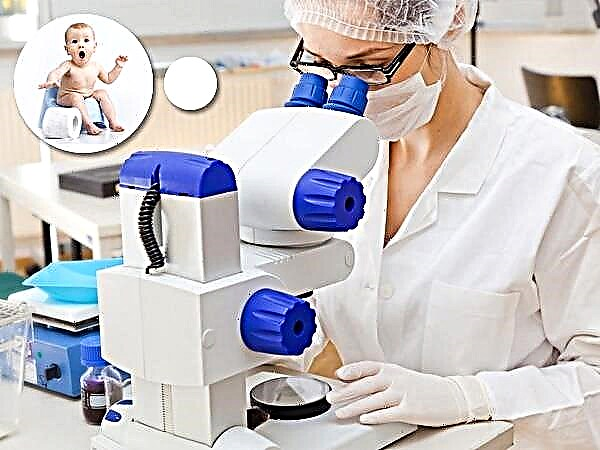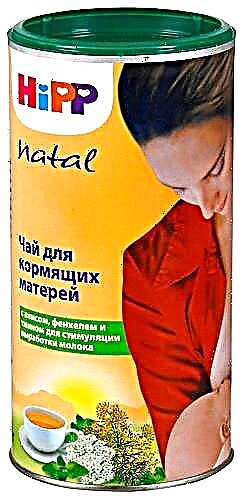One of the concerns of young mothers that a newborn baby serves is frequent regurgitation within an hour and a half after feedings. Normally, it is considered one of the reflexes that regulate nutrition, free the baby's body from excess food or swallowed air. This is a defensive reaction that prevents overstretching of the infant's ventricle. This trouble usually goes away by 7-8 months of age.

Spitting up is quite common in babies.
Why does the child spit up
More than half of all infants do this at least once a day. Regurgitation is considered a type of vomiting, and the child's health does not deteriorate.
Regurgitation with artificial feeding
Most often, this problem occurs in babies on artificial or mixed feeding - the baby can spit up after each feeding with the formula. The reasons for this unpleasant phenomenon can be different: both physiological and psychological, as well as indicate a serious illness of the baby.
Physiological causes of regurgitation
Quite often, vomiting after feeding is explained by the structural features of the gastrointestinal tract. baby:
- the esophagus is rather short in length and spherical;
- its funnel-shaped structure (expands upward);
- narrowing of the esophagus within the physiological norm;
- poor development of the gastric pylorus (sphincter), resembling an "open bottle".
The muscle layer in the stomach is still very weak, the mucous membrane is very sensitive, therefore, in response to the peristaltic wave in newborns, the fundus of the stomach contracts sharply, and with an increase in pressure, food is simply pushed back into the esophagus, from there into the oral cavity.

The structure of the digestive system of the baby
Note. If the child is premature, he may have morphological and functional immaturity of the alimentary tract, as well as perinatal damage to the nervous system.
The functional causes of frequent regurgitation are:
- excessive feeding of the child with an artificial mixture - the stomach is strongly stretched;
- indiscriminate nutrition - the desire to feed the "artificial" as well as infants - on demand, while the mixture is a heavier product for the stomach and is absorbed more slowly;
- gastroesophageal reflux, due to which there is an involuntary reflux of semi-digested contents from the stomach and even intestines;
- aerophagia - after the baby has swallowed a lot of air while sucking, the air bubble rises from the stomach and, as it were, "pushes" a little mixture out of it back into the oral cavity (the child is in an upright position);
- flatulence, accompanied by an increased formation of gases in the intestines, which increase the pressure in the child's abdominal cavity, and, as a result, cause regurgitation;
- wrong choice of artificial mixture, allergic reactions to cow's milk protein in it;
- high mobility of the baby, especially after feeding, frequent and abrupt change of position;
- swaddling too tight, leading to stagnation of air inside the body.
Also, regurgitation can be caused by serious digestive disorders:
- dysbiosis, which was caused by antibiotic therapy or unhealthy diet, leading to severe microflora disorders;
- infectious lesions, then the baby has fever, lethargy, anxiety, diarrhea, colic.
Normal regurgitation process
The complex reflex act of vomiting (regurgitation is a type of vomiting) looks like an involuntary passive injection of the contents of the child's ventricle into the oral cavity through the esophagus and pharynx. When the tone of the lower part of the esophagus is reduced, the food lump cannot move normally there, acidic masses enter the esophagus, which can harm the mucous membrane of the children's stomach. Regurgitation (also known as gastroesophageal reflux) is accompanied by the release of air from the throat. In babies, ejaculated masses resemble cottage cheese in consistency with impurities of saliva and gastric juice, their volume is usually small (up to 3 ml). Normal physiological reflux does not cause reflux esophakig (painful inflammation of the esophagus).
How to distinguish vomiting from regurgitation
According to physiological norms, a healthy newborn child can regurgitate not abundantly and not so often. At the same time, the mood remains cheerful, playful, the baby looks healthy.
Vomiting is a complex reflex act, in which many abdominal muscles are involved, as well as the diaphragm, it is more abundant than simple regurgitation. If a baby is vomiting, this is a dangerous symptom, it can lead to breathing and heart problems. Vomit is often colored orange due to impurities of bile. Unlike simple regurgitation, gagging followed by the eruption of stomach contents worsen the child's condition: he becomes dehydrated, crying, and bile can burn the larynx.

Vomit is yellow
What should alert parents
Frequent persistent profuse regurgitation, after which the baby may even lose weight, may be evidence of developmental pathologies, they should become a reason for parents to show concern and alertness. Can be diagnosed:
- abnormal structure of the gastrointestinal tract (pyloric stenosis - spasm of the gastric sphincter, leading to constant overflow of the stomach, is usually treated with surgery, as well as diaphragmatic hernia) appears after about half a month of life);
- perinatal damage to the central nervous system - the consequences of severe pregnancy, high intracranial pressure, tremor of the extremities, birth trauma;
- severe infectious lesions (from hepatitis to meningitis), while the child is lethargic, can cry monotonously for a long time;
- genetic metabolic disorders such as phenylketonuria, galactosemia, etc .;
- renal failure;
- the initial stage of poisoning.
When to see a doctor
If parents can cope with ordinary baby regurgitation on their own, then some cases require the intervention of a pediatrician. If at least one of the following phenomena is present, you should go to the clinic or call a doctor:
- the number of regurgitation increases sharply, the interval between them decreases;
- the baby cries pitifully and loudly, arches its back, there is a fever;
- the baby continues to be fed, but, despite this, he is losing weight;
- the child vomits intensely with yellowish masses;
- he may spit up after feeding and upon reaching the age of one;
- it can be seen that the child is dehydrated and wants to eat immediately after the attack;
- constipation and a decrease in the frequency of urination to less than 10 per day.
Children's doctors have developed a scale for assessing the intensity of regurgitation, which evaluates them in points. For instance:
- complete absence - 0 points;
- less than 5 per day, not more than 3 ml - 1 point;
- more than 5 times and more than 3 ml - 2 points;
- more than 5 times with half the amount of food per feeding - 3 points;
- constant regurgitation for half an hour after each feeding with a small amount - 4 points;
- return of almost the entire volume of the consumed mixture in half of the feedings per day - 5 points.
If the parents assess the child's condition more than 3 points, the baby loses weight and grows restless, it is necessary to consult a doctor as soon as possible, who will determine why the child spits up after feeding with the formula, and will prescribe objective treatment to correct pathologies.
Danger of regurgitation by a fountain
Quite often, newborn babies, after sucking the mixture, give out regurgitation, reminiscent of a fountain in intensity. After repeated repetition of such a phenomenon, parents should immediately contact a pediatrician - this condition is dangerous for the baby and can even lead to his death due to choking, especially if the baby is lying on its back.
Vomiting with a fountain in newborn children who are fed with artificial formula indicates serious disorders in the gastrointestinal tract (some of them are eliminated only by surgery) or the presence of generic herbs (damage to the cervical spine, for example), poisoning or the beginning of infectious processes in the body ...
A recurring similar phenomenon is a reason to show the baby to a pediatric neurologist in order to exclude pathologies in the development of the child's nervous system, sleep disorders, increased intracranial pressure and more serious neurological diseases.

Regurgitation by a fountain is very dangerous for a child's health.
What to do when regurgitating
If the child spits up, you should calm him down and calm himself down, wipe his face with a special napkin, and change clothes if necessary. If the baby is feeling hungry, you can bring the next feed a little closer.
With frequent regurgitation, feeding the baby is carried out in a position with the upper body raised by 60 degrees, after saturation for half an hour, it should be held vertically ("column") for a better release of the swallowed air (for the same reason, sometimes the baby begins to hiccup, releasing air from esophagus).
Also, in the presence of regurgitation, parents are advised to give the baby a light massage before feeding, putting him on his lap on a warm diaper and stroking the baby on the back and tummy. Such influences allow him to relax, and also expel excess air from the abdominal cavity.

Massage before feeding
Additional Information. It is impossible for such children to squeeze the abdominal area in any way: give up tight swaddling, pants with an elastic band (replace with sliders with straps or overalls).
Sleep should be organized on a thin pillow of several folded diapers (or raise the head of the crib by a dozen centimeters), preferably on the right side to reduce the reflux of the baby's stomach contents up the esophagus.
The organization of therapeutic nutrition helps to cope with the problem of regurgitation with a mixture. It should be more frequent (the number of feedings increases by 1-2 per day), but should be performed in smaller portions. At the same time, parents should make sure that the baby consumes all the food ration required for age.
Most babies with habitual regurgitation are prescribed medicinal mixtures, which are marked in specialized stores with the letters AR and contain an increased proportion of the complex milk protein - casein. It is he who prevents regurgitation due to rapid curdling in the stomach, turning the mixture eaten by the child into a thick mass. A similar effect is exerted by the introduction of thickeners into mixtures: potato or rice starch or gum, which also contribute to the rapid movement of eaten from the stomach into the intestines.
The industry produces many brands of specialized antireflux artificial mixtures that have a reduced fat content that impede the movement of food from the stomach into the intestine, and also reduces the motor activity of the newborn's small intestine.
The most effective, from the point of view of pediatricians, and popular mixtures of this type are:
- "Nutrilon antireflux";
- "Frisov";
- Enfamil;
- "Samper Lemolak";
- Similak;
- Similak Plus;
- Abbott Laboratories.

Anti-reflux mixture
Prevention of regurgitation
In "greedy" babies who pounce on their bottle with the mixture and suck it very hastily, it is very important to prevent the development of habitual regurgitation due to the constantly swallowed air. It is necessary to keep them in a column more often and never put them on the back immediately after eating, but lay them on the tummy for a while before feeding. During sucking, the nipple must be completely filled with the contents of the bottle.
Almost 85 percent of healthy babies experience belching or regurgitation after feeding in the first 2-3 months of life. For those babies who are formula-fed, this percentage is even higher due to frequent overfeeding. The main reason is the anatomical immaturity of the gastrointestinal tract of newborns, so this problem goes away by itself as the child grows. At the same time, frequent persistent regurgitation, especially with a fountain, may indicate serious health problems for the baby, this is a reason to contact a pediatrician. Treatment ranges from surgery to nutritional correction and switching to antireflux special mixtures.



